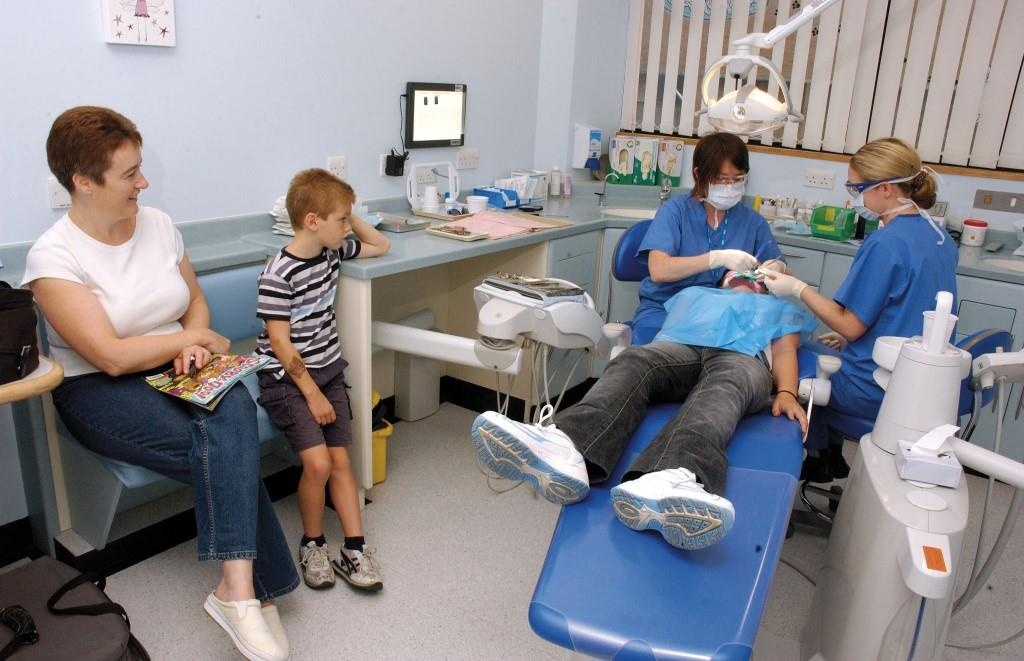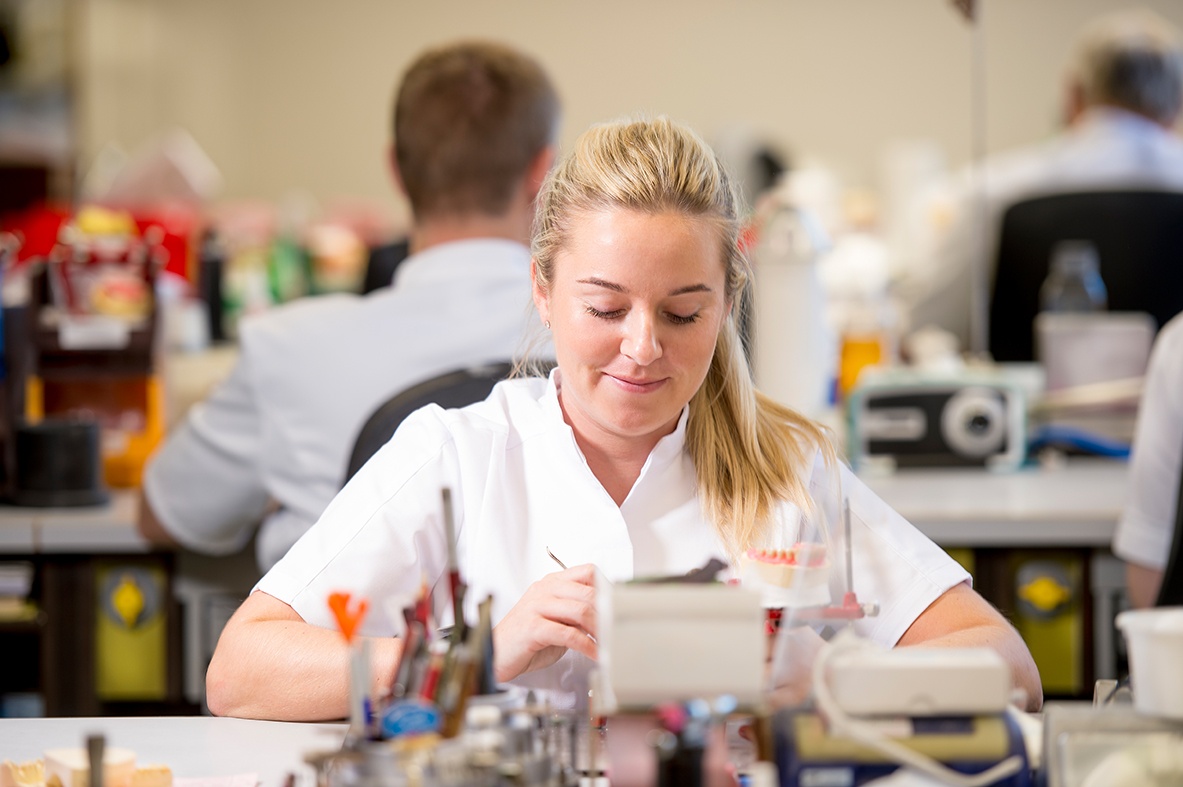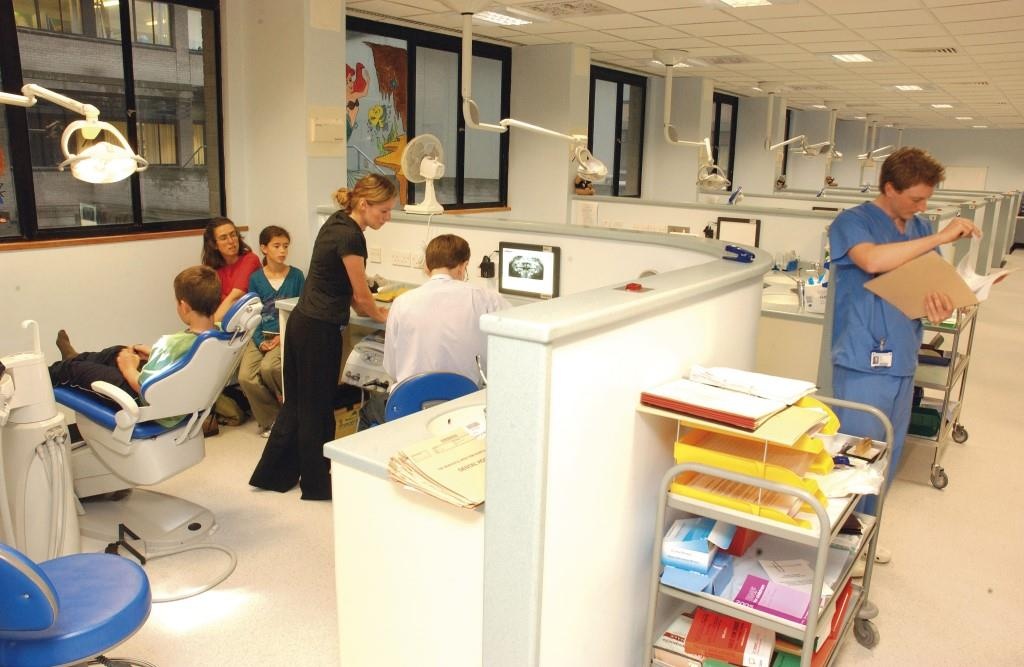Your Career
Dental care is an important part of healthcare. As well as looking after the nation’s mouths, the dental team contributes to the wider care of patients.
Dental
In recent years, oral health has improved as more of us are looking after our teeth better. The skills of the dental team, coupled with advances in dentistry, mean that a visit to the dentist is seen as a positive way to support health and well-being. There are still high levels of oral diseases to address, as well as maintaining and improving oral and general health.
Dental hygienist
As a dental hygienist, you will have a vital role in helping to prevent dental problems from arising by showing children and adults how to look after their teeth and gums. This can be on an individual basis or in groups.
Dental hygienists carry out procedures such as:
- scaling teeth (at times under local anaesthetic)
- polishing teeth
- applying topical fluoride and fissure sealants
They work in hospitals and in community dental services, but most frequently in general dental practices.
Your work as a dental hygienist will save teeth by preventing and treating gum disease, helping people get rid of associated problems like bad breath. The dentist will usually advise you and help direct your work, although it's now possible for hygienists and therapists who have extra training to set up their own practices or work independently in a dental practice so they can see patients without them seeing a dentist first.
In the community, you could work with people with a wide range of special or additional needs.
If you are based in a hospital, you will help patients who may have had major surgery or complicated orthodontic treatment or have particular medical conditions. The hospital patients you see may be very ill, apprehensive or unsure after life-changing surgery.
Dental Therapist
Being a dental hygienist therapist is a rewarding career You will help patients avoid and manage oral disease by promoting good oral health and providing treatments. You will work independently on patients by direct access or under prescription from a dentist. Most dental therapists work in primary care settings such as dental practices and Community Dental Services.
As well as being able to provide all the treatments offered by a dental hygienist you are able to carry out the restoration of deciduous and permanent teeth and extraction of deciduous teeth.
To practise in the UK, dental hygienist therapists are required to enter their names in the Register for Dental Hygienist Therapists, which is kept by the Registrar of the General Dental Council.
Dental nurse
As a dental nurse, you may help with reception work and could help any member of the dental team - dentists, clinical dental technicians/technologists, hygienists and therapists – treat patients of all ages.
Some will be there for a check-up while others will have more complicated treatment. You’ll need to reassure people and put them at ease, while supporting the team in all aspects of patient care.
In a dental practice you will welcome patients and provide direct support with the treatment itself:
- taking responsibility for the decontamination of instruments
- maintaining dental operating equipment
- ensuring that all relevant materials and supplies are in place
- looking after patient records – including making notes when the dentist is examining a patient
- working closely with the dentist, responding quickly to requests and generally keeping the surgery ready for use
You will also be responsible for ensuring high standards of cleanliness and control of infection. With extra training you could take x-rays and clinical photographs, take impressions, make models of teeth and apply fluoride varnish to prevent tooth decay.
You may also help with reception work. Tact and discretion are important qualities for a dental nurse - you will be handling confidential patient information and caring for people who may be anxious.

Dental technician/dental technologist
Dental technicians/technologists make the dentures, crowns, bridges and dental braces that improve patients’ appearance, speech and ability to chew.
As a technician/technologist, much of your work will be done by hand to fine-tune each piece to exact specifications, but you will also work with specialised equipment in the laboratory. Since each patient is unique, no two pieces are the same and absolute precision is essential to make sure the device is comfortable and effective for the patient.
Technicians and technologists use a wide range of materials to design and construct appliances and work in four specialist areas:
- prosthodontic technicians design and make dentures
- conservation technicians specialise in crown and bridge work
- orthodontic technicians make braces to correct tooth positions
- maxillofacial technicians' work is based in hospital oral surgery, ophthalmic, cancer and burns units, helping to reconstruct the faces of patients damaged by accident or disease
Dental technicians may also work directly with patients in a clinic alongside a dentist or clinical dental technicians.
Clinical dental technicians are dental technicians who have undertaken specific clinical training to enable them to design, create, construct, modify and fit removable dental appliances for patients. In this role, you would be able to provide dentures direct to patients with no natural teeth, or work with and to the prescription of a dentist to provide partial dentures for patients with some teeth. This is an interesting option for dental technicians who would like to have direct contact with patients. An important part of the role is to check on the patient's general dental welfare.

Dentist
Dentists lead the dental team and have the skills and confidence to diagnose and treat problems and provide good advice to patients, as well as high levels of manual dexterity to carry out intricate surgical and dental procedures.
They have excellent knowledge of human anatomy and oral diseases, as well as first-class clinical skills.
Dentists’ work is increasingly preventive, protecting teeth and gums from decay and disease. Most dentists work as general practitioners and patients come from their local community.
Dentists also work in:
- general dental care
- community dental care
- dental public health
- hospital dental care

Please note that all content on this page is copyright of Health Education England.

